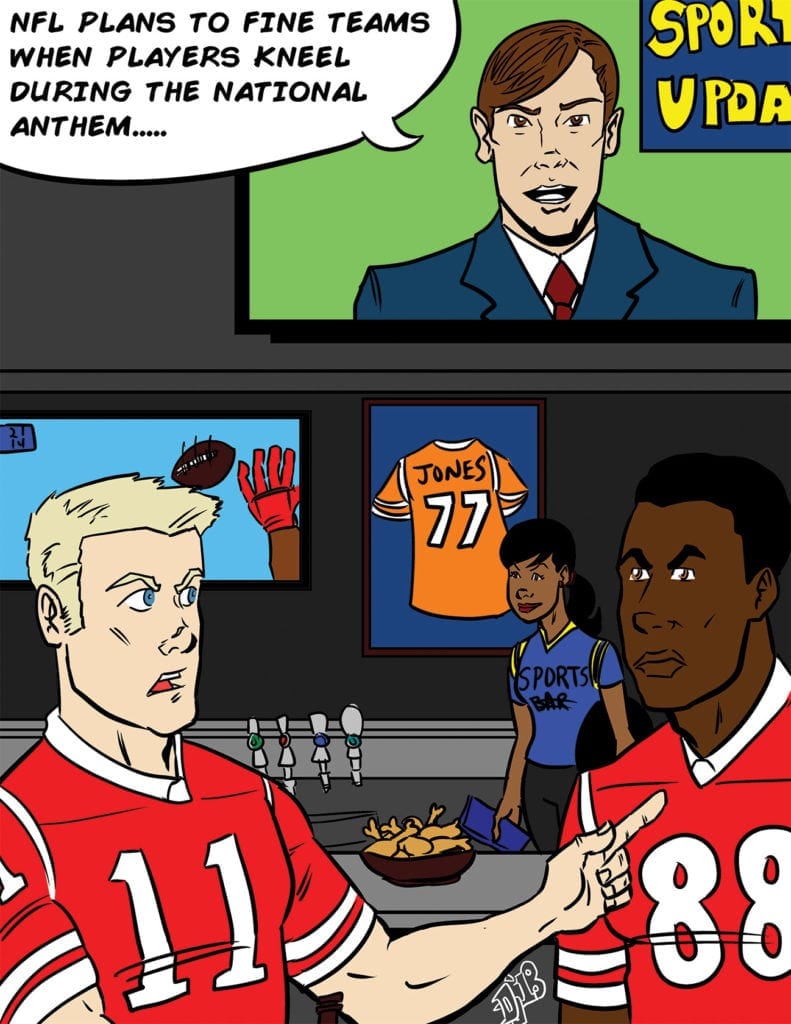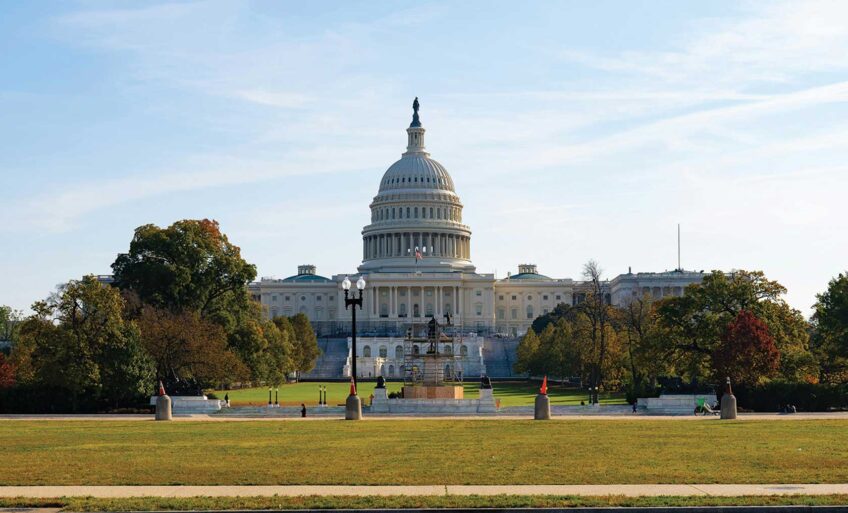
The National Football League proposal to eliminate protests by players at games severely violates the spirit of the nation’s First Amendment to the Constitution. The issue is not whether team owners have the right to establish rules of conduct for their players, but whether it is advisable for the league to stifle the unassailable right of free speech.
When the Founding Fathers drafted the Constitution of the United States the Seven Articles set forth the separation of powers between the three branches of government: Congress, the Executive and the Judiciary. But the rights of the individual, the most unique and exceptional of the nation’s principles, are contained in Constitutional amendments.
The First Amendment provides: There can be no law to establish a religion or to prohibit its exercise; the freedom of speech or the press cannot be abridged; and the people have the right to assemble peaceably and to petition the government for the redress of their grievances. There can be no doubt that by kneeling peaceably during the playing of the national anthem, players are protesting the government’s failure to prevent police assaults on African Americans.
The courts have been assertive in enforcing First Amendment rights. It was once customary to begin the public school day by reciting the Lord’s Prayer or by reading a passage from the Bible. When this practice was challenged as the establishment of religion it had to be discontinued across the country. When Roy S. Moore, who was recently defeated in the election for U.S. senator from Alabama, tried to install a tablet inscribed with the Ten Commandments at the Alabama Supreme Court House, he was ultimately removed from office as chief justice for this defiance.
A strategy in the South during the civil rights era was to charge with defamation both black leaders and newspapers that published their comments against local government officials. The famous case before the U.S. Supreme Court of New York Times v. Sullivan gave the press the right to publish stories about public officials without the danger of expensive lawsuits.
Local restrictions on parades and public assemblies are frequently overturned. Criminal charges against protestors for burning or desecrating the American flag have been ruled by the U.S. Supreme Court as unconstitutional because anti-flag actions in a protest are equivalent to uttering words. The threat of criminal action cannot be resorted to as a strategy to suppress speech.
The protest of professional football players is very mild compared with the history of protests. Everyone knows that the real issue is the appearance of black defiance.
The right to protest is as American as apple pie. Draft dodger Donald Trump has suggested that team owners fire players who kneel. He has even gone further. Trump is reported to have said, “You have to stand proudly for the national anthem or you shouldn’t be playing, you shouldn’t be there — maybe you shouldn’t be in the country.” It should be clear to thinking Americans that Trump has little respect for the First Amendment, or for African American citizens.
The proposed NFL solution of fining teams with protesting players is unworkable. The national anthem should be played, if at all, during the pre-game festivities before the teams take the field. This will avoid an unpleasant confrontation between NFL owners and their black players. There will also be no appearance of the NFL being on the wrong side of the First Amendment.






